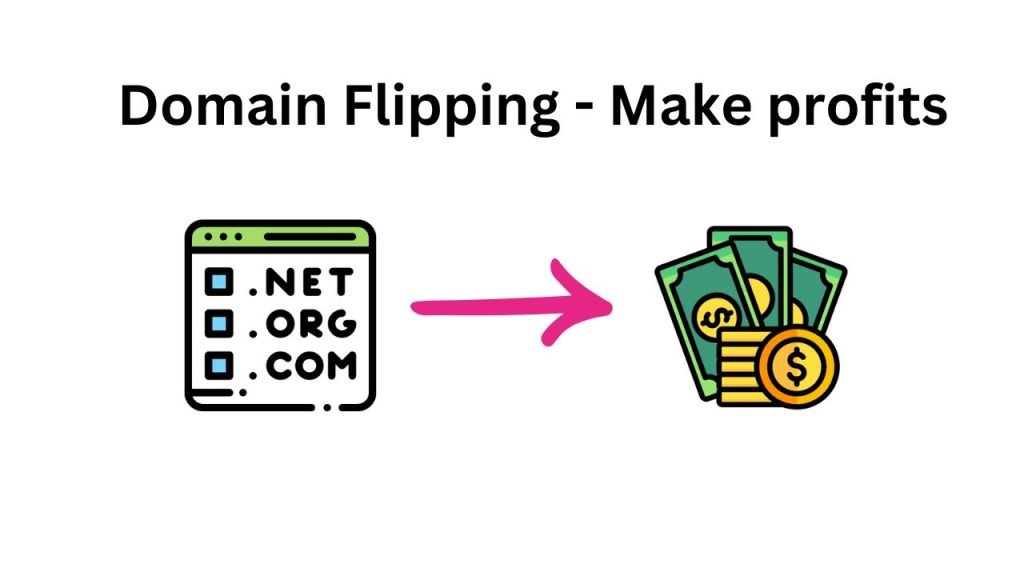Introduction
In the digital age, where online presence is paramount for businesses and individuals alike, domain flipping has emerged as a lucrative venture. However, while many are drawn to the idea of buying and selling domain names for profit, few truly understand the complexities and strategies involved in mastering this art. In this comprehensive guide, we will explore advanced techniques for domain flipping, equipping you with the knowledge and skills needed to succeed in this competitive industry.

Understanding the Domain Flipping Landscape
Domain flipping, at its core, involves acquiring domain names at a low price and selling them for a higher price, often after adding value through development or strategic positioning. Yet, the domain flipping landscape is far more intricate than this simple definition suggests. To truly understand domain flipping, one must grasp the nuances of market trends, buyer behavior, and the factors that contribute to a domain’s value.
Keyword relevance, search volume, brandability, and market demand are just a few of the many factors that can influence the value of a domain name. Moreover, with the proliferation of new domain extensions and the increasing importance of online branding, domain flipping has become a multifaceted endeavor that requires a keen understanding of digital marketing principles and consumer psychology.
Key Factors in Successful Domain Flipping
Research and Analysis:
Research is the cornerstone of successful domain flipping. Before diving into any transaction, it’s essential to conduct thorough research to identify valuable domain names. This includes analyzing keyword trends, assessing market demand, and evaluating historical sales data. By leveraging domain valuation tools and market analytics, flippers can gain valuable insights into a domain’s potential value and make informed investment decisions.
Strategic Acquisition:
Strategic acquisition is key to building a valuable domain portfolio. Whether through domain auctions, expired domain lists, or direct negotiations with domain owners, flippers must employ a variety of tactics to secure desirable assets at favorable prices. This may involve identifying undervalued domains, spotting emerging trends, or capitalizing on niche market opportunities.
Advanced Domain Flipping Strategies
- Domain Development: While traditional domain flipping involves simply buying and selling domain names, advanced flippers often take a more proactive approach by developing their acquired assets. By creating quality content, optimizing for search engines, and building a strong online presence, flippers can enhance the value of their domains over time. This not only attracts potential buyers but also generates additional revenue through advertising, affiliate marketing, and other monetization strategies.
- Monetization Methods: In addition to selling domains outright, flippers can monetize their domain portfolios through various other means. Domain parking, for example, allows flippers to earn passive income by displaying ads on their parked domains. Similarly, leasing domains to businesses or partnering with affiliate marketing programs can provide ongoing revenue streams. By diversifying their monetization methods, flippers can maximize their earnings and mitigate risk.
Mitigating Risks and Maximizing Returns
- Legal Considerations: Domain flipping is not without its legal risks. Flippers must navigate trademark laws, copyright regulations, and domain dispute resolution processes to avoid potential legal issues. Conducting thorough due diligence on each domain and seeking legal advice when necessary can help mitigate these risks and protect both buyers and sellers.
- Portfolio Management: Managing a domain portfolio effectively is essential for long-term success in domain flipping. Flippers should regularly evaluate their portfolios, identifying underperforming assets and opportunities for growth. Diversification across different niches, as well as strategic optimization and renewal decisions, can help maximize returns and minimize risk exposure.
Tools and Resources for Domain Flippers
- Domain Marketplaces and Auction Platforms: Platforms like Sedo, Flippa, and GoDaddy Auctions provide access to a wide range of domain listings and auction opportunities. These platforms offer valuable insights into market trends, pricing data, and competitor analysis, helping flippers make informed investment decisions.
- Domain Valuation Tools and Analytics: Utilizing domain valuation tools like Estibot, DomainIQ, and NameBio can help flippers assess the value of potential domain acquisitions. These tools provide valuable insights into domain metrics, market trends, and comparable sales data, enabling flippers to accurately evaluate the worth of a domain and make informed investment decisions.
- Industry Forums and Communities: Engaging with fellow domain flippers in industry forums and communities can provide valuable networking opportunities and educational resources. Platforms like NamePros and DNForum offer forums for discussing strategies, sharing experiences, and staying updated on the latest trends and developments in the domain flipping industry.
FAQs About Domain Flipping
Q: Is domain flipping legal?
A: Yes, domain flipping is a legitimate business practice. However, it’s important to adhere to trademark laws, copyright regulations, and ethical standards when buying and selling domains.
Q: How much money can I make from domain flipping?
A: The amount of money you can make from domain flipping varies depending on factors like domain quality, market demand, and your ability to negotiate favorable deals. Some domain flippers make a few hundred dollars per sale, while others earn thousands or even millions of dollars.
Q: Do I need technical skills to succeed in domain flipping?
A: While technical skills can be beneficial, they’re not necessarily required to succeed in domain flipping. Basic knowledge of domain registration, website development, and online marketing can be helpful, but you can also outsource tasks like website design and SEO if needed.
Q: How long does it take to sell a domain?
A: The time it takes to sell a domain varies depending on factors like domain quality, market demand, and pricing strategy. Some domains sell quickly within days or weeks, while others may take months or even years to find the right buyer.
Conclusion
Mastering domain flipping requires a combination of research, strategy, and execution. By leveraging advanced techniques, staying informed about market trends, and continuously refining your skills, you can maximize profitability and achieve success in the dynamic world of domain flipping. Whether you’re a seasoned flipper or just starting out, the key is to stay adaptable, embrace innovation, and never stop learning. With the right approach and mindset, the possibilities in domain flipping are virtually limitless.


